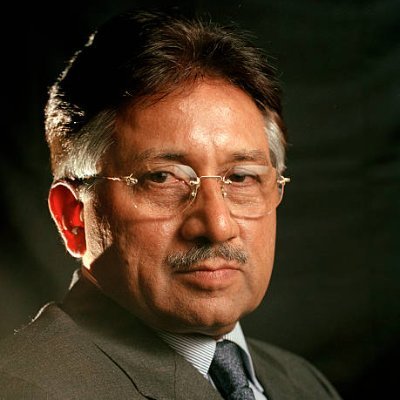Six decades down the road from the nascent whiffs of freedom, Pakistan is still struggling to find a definition of democracy to suit needs of generals and wants of politicians. World television stations were awash with pictures of gunfire, troubled parents and relatives, politicized religious mullahs and tight lipped soldiers on patrol when Red Mosque seize and later sanguinary development took place in Islamabad.
With external pressure especially from US mounting to fight pro-Taliban and terrorist elements in the lawless tribal belt along the Afghan border, and Pakistan President General Pervez Musharraf’s own popularity plunging over recent months with the abortive sacking episode of Supreme Court Chief Justice Iftikhar Chaudhry, the General was cornered and needed to do something immediately.
With such background of popular unrest General Musharraf had to move fast to make sure his “military democracy” stays afloat as he waits for the end of his term as army chief at the end of current year. Hats off to President Musharraf! Recent weeks have seen a game plan of General Musharraf that changes everyday speculations of political arena faster than a kaleidoscope. With a subtle bait of political power up for grabs he changed the focus altogether to another landscape.
Today we hear talks of democracy, elections and freedom to former prime ministers to return home with widespread expectations of an early announcement by President Musharraf that he would step down as army chief. Former prime minister Benazir Bhutto of Pakistan People’s Party (PPP) has been openly engaged in negotiations with President Musharraf. Bhutto has her path defined clear cut: After dropping of corruption charges, to return; change of constitution for her to not only participate in upcoming elections but also become third time prime minister. Bhutto also wants General Musharraf to relinquish army uniform as she recently said on a TV program, “The Pakistan People’s Party has been struggling to take military out of politics. And the fact that General Musharraf wears a uniform blurs the distinction between civilian and democratic rule.”
On the other hand, a recent ruling by Pakistan’s Supreme Court complicated the matters. Ousted in 1999 by General Musharraf in a bloodless coup, former prime minister Nawaz Sharif and his brother Shahbaz Sharif have been allowed to return to his homeland by the Supreme Court ruling. Announcing September 10 as his return date, Sharif from Pakistani Muslim League (N) questioned the so called deal talks going on between Bhutto and Musharraf. Sharif told journalists in London last week, “”I don’t know what is going on between Musharraf and Benazir Bhutto, and I don’t know what is the need to talk to Musharraf at this stage when he has lost all his popularity and his government writ is no longer visible anywhere in Pakistan.”
Interesting to note that Bhutto and Sharif have been bitter political rivals in the 1990s with one forcing other out before either could complete term as prime minister. Another factor that Sharif wants to forget is the 10-year exile agreement between himself and President Musharraf with the Saudi royals as one of the parties. Sharif was reminded of it by ruling Pakistan Muslim League (Q) president Chaudhary Shujat Hussain when he said on Geo television that the Sharif brothers instead of returning on September 10 should “perform umrah”. As devout Muslims have to go to Saudi Arabia to perform the “umrah,” Chaudhary Hussain hinted that the Sharif brothers should head to Saudi Arabia as agreed in the 10-year exile agreement. Sharif was sentenced to life in prison for offenses including tax evasion and treason after the 1999 coup but was allowed to leave the country after the agreement.
Moreover, both Bhutto and Sharif are disqualified to become prime ministers again as the law stands today saying prime ministers cannot serve more than two terms. While all this permutations and combinations of different political identities go on, there is one fact that can not be overlooked. Since 1947, Pakistan has a history of army rule for more than half of its existence and army rulers always have their taproot of power firmly entrenched in the barracks.
General Musharraf can talk of all the options but he will definitely think twice before getting out of his military uniform and handing that power of the barrel to someone else. Till now General is keeping everyone guessing and as he is proving a master strategist using his military command skills to confuse opponents and defuse volatile situations by diverting attention, time will keep him in power till that fatal mistake that military thinking machines make in civilian situations.

Tejinder Singh
Tejinder Singh was the Founder and Editor of India America Today, and is the inspiration for Global Strat View.








